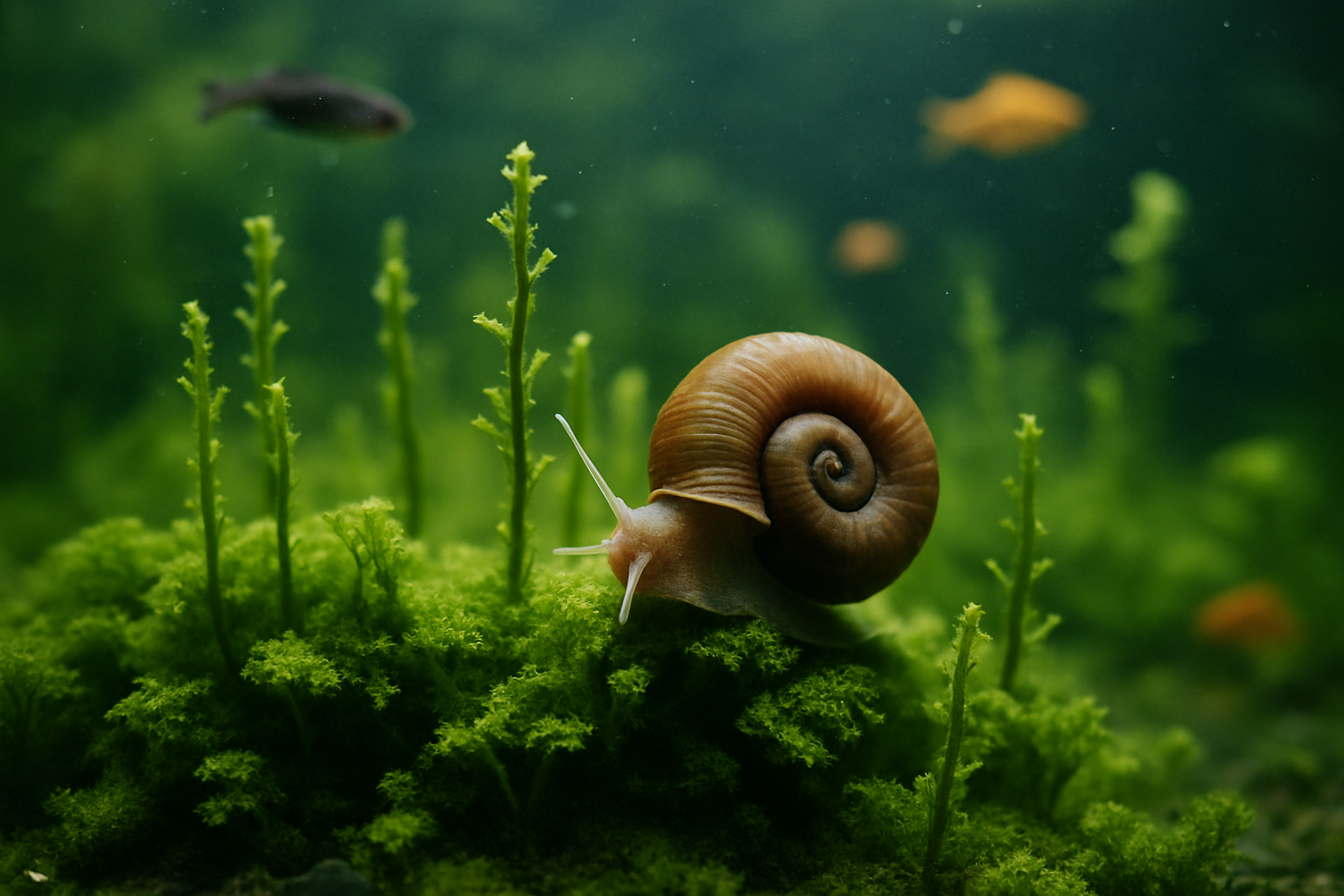Unraveling the Enigma of Aquatic Snail Intelligence
Dive into the mesmerizing world of aquatic snails, where surprising cognitive abilities lurk beneath their unassuming shells. These often-overlooked mollusks possess a fascinating array of skills that challenge our perceptions of invertebrate intelligence. From problem-solving prowess to memory retention, aquatic snails are rewriting the rules of underwater cognition.

The Evolution of Snail Cognition
The story of snail intelligence begins millions of years ago, as these gastropods adapted to diverse aquatic environments. Fossil records indicate that snails have inhabited Earth’s waters for over 500 million years, evolving complex sensory systems and neural networks to navigate their underwater realms. This long evolutionary history has given rise to a surprising level of cognitive sophistication in modern aquatic snails.
Sensory Perception: The Foundation of Snail Intelligence
Aquatic snails possess a remarkable array of sensory organs that form the basis of their cognitive abilities. Their highly developed chemoreceptors allow them to detect minute chemical changes in their environment, while specialized organs called statocysts enable them to maintain balance and spatial orientation. These sensory adaptations play a crucial role in snail behavior and decision-making processes.
Problem-Solving Prowess: Snails as Underwater Engineers
One of the most intriguing aspects of aquatic snail intelligence is their ability to solve complex problems. Studies have shown that certain species of freshwater snails can navigate mazes and overcome obstacles to reach food sources. Researchers at the University of Exeter discovered that pond snails (Lymnaea stagnalis) could learn to solve simple puzzles, demonstrating a level of cognitive flexibility previously unrecognized in these invertebrates.
Memory and Learning: Snails Remember More Than You Think
Contrary to popular belief, aquatic snails possess impressive memory retention capabilities. Experiments have revealed that some species can remember and learn from experiences for several months, a significant feat for creatures with relatively simple nervous systems. This long-term memory allows snails to adapt their behavior based on past encounters, improving their chances of survival in dynamic aquatic environments.
Social Behavior: The Unexpected Complexity of Snail Interactions
While often perceived as solitary creatures, aquatic snails exhibit surprisingly complex social behaviors. Recent studies have uncovered evidence of social learning and information transfer among snail populations. For example, researchers observed that experienced snails could teach naive individuals to avoid predators through chemical cues, suggesting a rudimentary form of cultural transmission.
Implications for Aquarium Keeping and Conservation
The emerging understanding of aquatic snail intelligence has significant implications for both hobbyist aquarium keepers and conservation efforts. Aquarium enthusiasts are now reconsidering the role of snails in their tanks, providing more stimulating environments and enrichment activities to support their cognitive development. In the wild, this newfound appreciation for snail intelligence is driving conservation initiatives to protect these often-overlooked but ecologically vital creatures.
The Future of Snail Cognition Research
As our understanding of aquatic snail intelligence continues to grow, researchers are exploring new frontiers in gastropod cognition. Current studies are investigating the potential for snails to recognize individual conspecifics, understand cause-and-effect relationships, and even display rudimentary forms of self-awareness. These ongoing investigations promise to further revolutionize our perception of invertebrate intelligence and the cognitive capabilities of aquatic life.
The revelation of aquatic snail intelligence challenges our preconceptions about the cognitive abilities of invertebrates and highlights the complexity of underwater ecosystems. As we continue to unravel the mysteries of snail cognition, we gain valuable insights into the evolution of intelligence and the diverse ways in which different species perceive and interact with their environments. The humble aquatic snail, once overlooked, now stands as a testament to the hidden wonders of the natural world, inviting us to reconsider our understanding of intelligence in all its forms.






